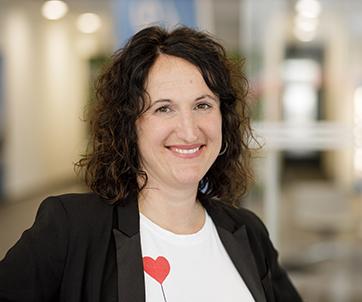Reliable refrigeration at the research institute - New PENSUM AIR from ENGIE Refrigeration is keeping things cool at a large German laboratory
Roughly six months ago, ENGIE Refrigeration GmbH from Lindau on Lake Constance, Germany, redesigned its air-cooled PENSUM AIR series and further optimised it for use in medium-capacity ranges. The refrigeration and heating specialist has now been able to deliver a model from the new series within Germany: in future, a PENSUM AIR from the Free Cool line with a refrigeration capacity of 295 kilowatts will ensure the requisite indoor climate at a large research institute.
The future is in the making at research and development institutes. It is therefore very fitting that the first chiller from ENGIE Refrigeration's PENSUM AIR series, which was redesigned in January 2020, will be deployed in precisely this working environment. After all, this model is also fully geared towards the future. For example, the PENSUM AIR now operates with even greater efficiency in the medium-capacity range than its predecessor, especially under partial loads. This chiller is also particularly eco-friendly and uses the future-proof refrigerant R-454B. This has a low GWP value of 466 and, consequently, already meets the future requirements of the F-Gas Regulation which take effect in 2030. For a large German research laboratory working in the field of infectious diseases, this was the key factor in its decision to choose a PENSUM AIR from the Free Cool line. The customer was also won over by the low overall weight and the extremely low noise levels made possible by the machine’s installation position on the roof of the building.
PENSUM AIR ensures operational reliability
The PENSUM AIR chiller from ENGIE Refrigeration, which was delivered to the customer a few days ago, has a refrigeration capacity of 295 kilowatts and will in future keep things cool in the institute's laboratory and office buildings. On site, the PENSUM AIR is an extension of an existing refrigeration system, but it will be used as the main machine from now on. On the one hand, this gives the research institute greater overall refrigeration capacity and, on the other hand, provides better protection for its system, as any failure of the refrigeration system would render valuable test results unusable. ENGIE Refrigeration has many years of experience in the field of sensitive areas of application: their chillers are used all over the world and can be found in medical facilities and in the pharmaceutical industry, to name but two examples.

ENGIE Refrigeration GmbH